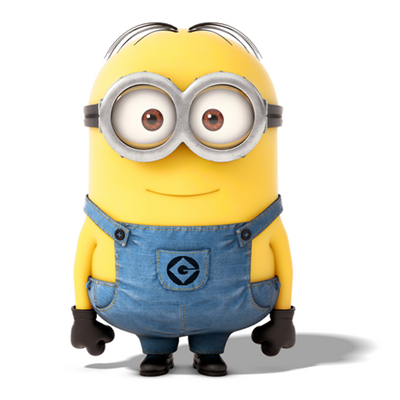CSC111 Class Page 2018
D. Thiebaut (talk) 12:58, 16 January 2018 (EST)
| Week 0 Jan 26 |
Topics: Overview of CSC111 Lab/Hw Reading - Friday
- Introduction
- Syllabus
- Expectations
- Pair Programming
- A feel for coding in Python
- Some programs to play with
- Slides
- No homework assignment this week
- For next week, Read Chapter 1 in Zelle (textbook)
- Read the article on Pair Programming
| Week 1 Jan 29 |
Topics: Introduction, Python, Idle, Piazza, Moodle submission Lab/Hw Reading - Monday
- We are getting the "feel" for Python programming...
- More examples of Python programs
- Preparation for Lab #1: Install Idle & Python on your laptop
- Some programs to play with in Idle
- Wednesday
- We continue with our exploration of Python. Getting the intuitive aspect of programming.
- Introduction to Lab 1
- Assignments
- Variables. Rules, camelCase
- Programs created in class
- slides
- Friday
- The programming process
- Variables and literals
- Memory: what does it look like?
- Overloaded operators
- Using the shell for quick testing
- Definite Loops (for ... in sequence: )
- Python documentation
- The range() function
- slides
- Read Chapter 1 in Zelle (textbook)
- Read the article on Pair Programming
| Week 2 Feb 5 |
Topics: Chapter 2: variables, definite loops, input, the range function Lab/Hw Reading - Monday
- Counted loops and the range() expression
- Getting data from the user using the input() function
- Using eval() for numbers obrained from the keyboard
- Using the on-line Python documentation
- Slides
- Programs created in class
- Wednesday: Snow day!
- Friday
- A word from Faith
- Understanding eval( input() )
- Exercise 1
- Exercise 2
- Programs created in class
- Slides
- Read Chapter 2 in Zelle.
| Week 3 Feb. 12 |
Topics: Arithmetic operators, math functions, main(). Lab/Hw Reading - Monday
- 4 minutes from Grier's video: When computers were human. Start at time=28m12s.
- Operators: * / + - ** // % abs()
- The type() function
- Writing a cash-machine program
- Formatting numbers (see Section 5.8.2 in Zelle), and example program
- Wednesday
- Formatting strings, ints and floats
- Using a main() function
- Accumulating results
- Programs created in class
- Friday
- Logistics
- Accumulating Results
- What are bits?
- Slides
- Read Chapter 3 in Zelle.
| Week 4 Feb. 19 |
Topics: Strings, Lists, and Files Lab/Hw Reading - Monday
- Strings, indexing
- positive and negative indexes
- lists, indexing lists
- string sections
- Concept of mutability and immutability
- Wednesday
- We have class on Wednesday, but the afternoon labs are cancelled
- Typical midterm exam questions
- slicing lists and strings
- the concepts of mutable and immutable lists/strings
- strings as objects
- String methods on Python.org
- slides
- Friday
- String methods
- String methods on Python.org
- Working with text files
- slides
- Programs created in class
- No Labs this week (Rally Day)
- Optional Homework Prep
- Homework 4
- Read Chapter 5 in Zelle
| Week 5 Feb 26 |
Topics: Functions, Files. Lab/Hw Reading - Monday
- CreateTextFile.py: a program to create simple text files
- Wednesday/Friday
- Chapter 6
| Week 6 March 5 |
Topics: Lab/Hw Reading - Monday
- Wednesday: Midterm Exam
- Friday
Spring Break
| Week 7 March 19 |
Topics: Processing Files Lab/Hw Reading - Monday/Wednesday/Friday
- Chapter 7 in Zelle
| Week 8 March 26 |
Topics: Lab/Hw Reading - Monday/Wednesday/Friday
- Indefinite loops are covered in Chapter 8 in Zelle.
| Week 9 Apr. 2 |
Topics: Exceptions, Classes, and Objects Lab/Hw Reading - Monday/Wednesday/Friday
- Section 7.4 in Zelle, on Exceptions
- Chapter 10: Defining Classes
| Week 10 April 9 |
Topics: Image Processing Lab/Hw Reading - Monday/Wednesday/Friday
| Week 11 Apr 16 |
Topics: LAM, User Interface, Widgets, Button, digitizing and rendering a Map Lab/Hw Reading - Monday/Wednesday/Friday
| Week 12 Apr 23 |
Topics: Lab/Hw Reading - Monday/Wednesday/Friday
- Zelle, Section 11.6 on Dictionaries.
| Week 13 Apr 30 |
Topics: Lists of lists, Inheritance Lab/Hw Reading - Monday
- Wednesday: Final Take-Home Exam
- Chapter 11 on Lists of lists
- Chapter 12 in Zelle, on Objects and Inheritance
Links and Resources
Graphics
- Zelle's graphic library can be found here
- A page with color names supported by the graphics library.
On-Line Python books
- disocovermagazine.com blog. Check out the answers posted by many readers. They contain some interesting links that you may find useful!
Python keywords
- The list of all the reserved words of the Python language
- and del for is raise assert elif from lambda return break else global not try class except if or while continue exec import pass yield def finally in print.
Python Programs in Textbook
- All the programs of Zelle's Python textbook
Misc
- When you work in pairs during the labs, or on homework assignments, you need to follow the protocol for 'pair programming' as discussed in this article.
Fun Programming Ideas to Explore on Your Own
|
|
TED: In 2007, Paul Rothemund gave TED a short summary of his specialty, DNA folding. Now he lays out in clear, abundant detail the immense promise of this field -- to create tiny machines that assemble themselves. |


